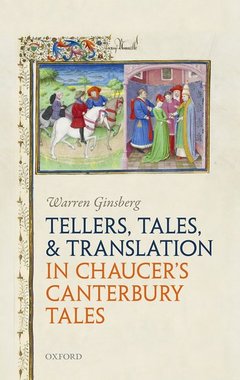Description
Tellers, Tales, and Translation in Chaucer's Canterbury Tales
Author: Ginsberg Warren
Language: English
Publication date: 11-2015
262 p. · 16.1x22.3 cm · Hardback
262 p. · 16.1x22.3 cm · Hardback
Description
/li>Biography
/li>
Two features distinguish the Canterbury Tales from other medieval collections of stories: the interplay among the pilgrims and the manner in which the stories fit their narrators. In his new book, Warren Ginsberg argues that Chaucer often linked tellers and tales by recasting a coordinating idea or set of concerns in each of the blocks of text that make up a 'Canterbury' performance. For the Clerk, the idea is transition, for the Merchant it is revision and reticence, for the Miller it is repetition, for the Franklin it is interruption and elision, for the Wife of Bath it is self-authorship, for the Pardoner it is misdirection and subversion. The parts connect because they translate one another. By expressing the same concept differently, the portraits of the pilgrims in the "General Prologue," the introductions and epilogues to the tales they tell, and the tales themselves become intra-lingual translations that begin to act like metaphors. When brought together by readers, they give the ensemble its inner cohesiveness and reveal what Walter Benjamin called modes of meaning. Chaucer also restaged events across his poem. They too become intra-lingual translations. Together with the linking passages that precede and follow a story, these episodes are the ligaments that stabilize the Tales and underwrite its remarkable elasticity. As much as the conceits that frame the work, the pilgrimage and the tale-telling contest, Chaucer's internal translations guided the construction of his masterpiece and the way his audiences have continued to read it.
Warren Ginsberg is Philip H. Knight Professor of Humanities at the University of Oregon. His books include Chaucer's Italian Tradition (2002); Dante's Aesthetics of Being (1999); and The Cast of Character: The Representation of Personality in Ancient and Medieval Literature (1983). He has also edited Wynnere and Wastour and The Parlement of the Thre Ages for the Middle English Text Series (1992). A Guggenheim Fellow (1999), he has published many articles on Chaucer, Dante, Boccaccio, Petrarch, and Ovid.
© 2024 LAVOISIER S.A.S.




